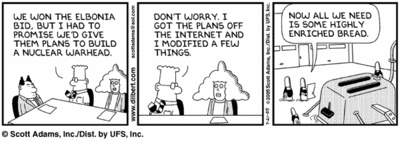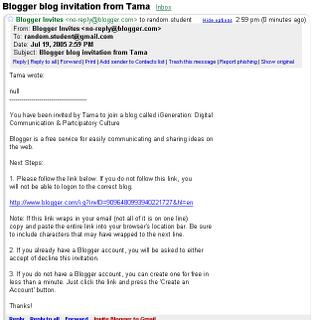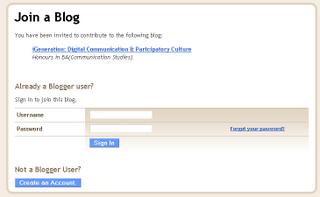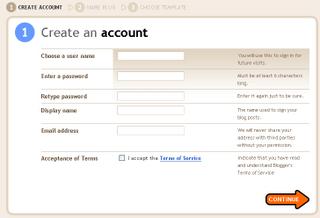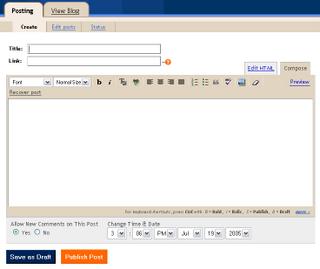week 2 stuff
Hi everyone,
After thinking about it, I'm not convinced as to the distinction made by Henry Jenkins between jammers and fans. He claims the diference lies in the intent; the former is motivated to resist and challenge the status quo, while the latter is motivated more by a love of the material they address.
However, the effects of both jamming and fan culture are similar in some ways. Both can actively disrupt the commercial machine. A clear example of fans challenging existing material is the Star Wars fan who, while motivated by love, still felt dissatisfied enough with the creation of The Phantom Menace to create the Phantom Edit.
I would argue that this tampering and changing of existing material is a mutual focus of jammers and fans. Both make use of existing cultural products to create new formations in accord with their own individual visions.
I would also argue that those who choose not to alter existing material should not be put under the "couch potato" label. Just because an individual is not physically altering or subverting material in a way which is obvious to others does not mean they are not actively engaging with the material.
It seems quite patronizing to assume that people who are not physically engaged with technology are simply faithfully absorbing any information provided without a critical thought floating through their minds. I have many a critical thought as I sit watching big brother... just because I don't create a big brother parody using taped footage spliced with animal kingdom clips doesn't mean I haven't thought of it. The fact that I could seems to be the point... because I choose not to doesn't necessarily make me a passive sponge. Perhaps it just makes me lazy...
Anyway, that's my little rant...
oops, just saw Hilary's comments down there, now I don't know where mine should go... Aaargg! Sorry, haven't addressed your points at all Hilary, but I'll just say Bravo!
After thinking about it, I'm not convinced as to the distinction made by Henry Jenkins between jammers and fans. He claims the diference lies in the intent; the former is motivated to resist and challenge the status quo, while the latter is motivated more by a love of the material they address.
However, the effects of both jamming and fan culture are similar in some ways. Both can actively disrupt the commercial machine. A clear example of fans challenging existing material is the Star Wars fan who, while motivated by love, still felt dissatisfied enough with the creation of The Phantom Menace to create the Phantom Edit.
I would argue that this tampering and changing of existing material is a mutual focus of jammers and fans. Both make use of existing cultural products to create new formations in accord with their own individual visions.
I would also argue that those who choose not to alter existing material should not be put under the "couch potato" label. Just because an individual is not physically altering or subverting material in a way which is obvious to others does not mean they are not actively engaging with the material.
It seems quite patronizing to assume that people who are not physically engaged with technology are simply faithfully absorbing any information provided without a critical thought floating through their minds. I have many a critical thought as I sit watching big brother... just because I don't create a big brother parody using taped footage spliced with animal kingdom clips doesn't mean I haven't thought of it. The fact that I could seems to be the point... because I choose not to doesn't necessarily make me a passive sponge. Perhaps it just makes me lazy...
Anyway, that's my little rant...
oops, just saw Hilary's comments down there, now I don't know where mine should go... Aaargg! Sorry, haven't addressed your points at all Hilary, but I'll just say Bravo!
